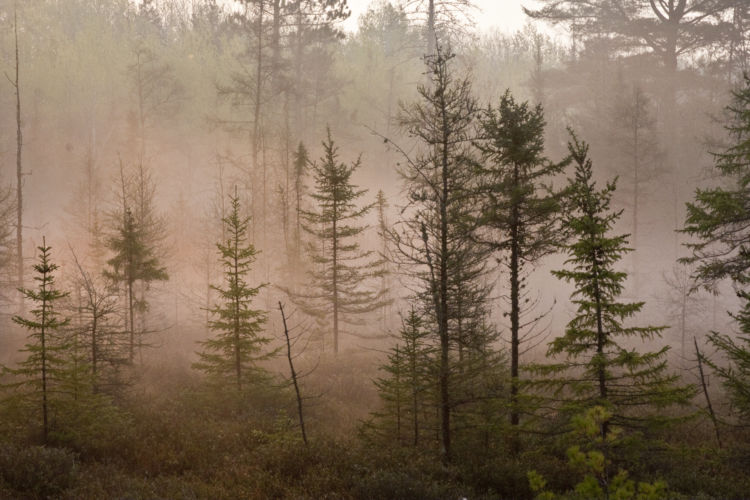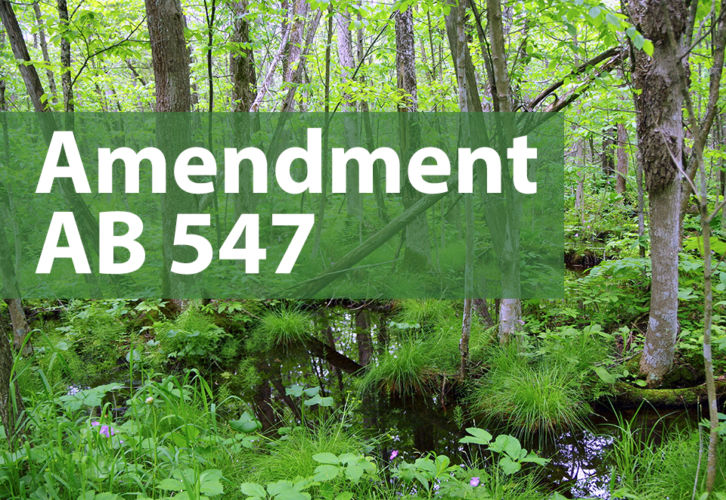The Senate Committee on Natural Resources and Energy voted today to amend Senate Bill 600. As amended, the bill lessens the negative impacts allowed in the original bill, but still clears the way for the destruction of tens, possibly even hundreds, of thousands of acres of wetlands important for waterfowl, trout, fur bearers, and many other species of fish and wildlife.
The amended bill retains exemptions for impacts to isolated wetlands within a half-mile radius of every city and village in Wisconsin and in all towns served by a sewerage system — with the first 10,000 square feet (nearly ¼ acre) of fill per project exempt from mitigation. As communities grow and expand, the areas exempt from wetland protection will grow too.
The wetlands threatened are also critical for reducing floods, recharging groundwater, and protecting water quality, and the bill eliminates the authority of municipalities to preserve these protective services through local ordinances. This undermines community-based efforts to address flooding and water quality challenges across the state and puts Wisconsin’s people, property, and public infrastructure at risk.
“Wisconsin Wetlands Association commends the effort put forth by Senator Cowles and his staff to tone down the most damaging provisions in the original bill, and we are grateful for the extensive push by our partners in the sportsmen’s community to improve the outcomes for wetlands,” said Tracy Hames, Executive Director of the Wisconsin Wetlands Association, “however, this bill remains fundamentally flawed.”
“What’s most disappointing is that options were offered by us and other experts that would have more effectively reduced project delays and expenses, while also protecting the resource. Unfortunately, policymakers didn’t fully trust what the conservation community has to offer,” said Hames. “That’s a tough obstacle to overcome, but we remain available to work with those willing to work with us in support of wetland conservation.”
Related Content
Untold amount of wetlands left vulnerable
Read our statement on the Assembly’s amendment of this bill.
Myth-busting misconceptions about “isolated” wetlands



